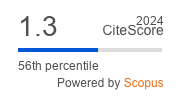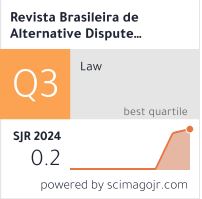Publisher
Sulla rivista
FOCUS AND SCOPE
The Brazilian Journal of Alternative Dispute Resolution (RBADR) is a scholarly publication exploring alternative dispute resolution (ADR) methods, including Arbitration, Mediation, Dispute Boards, Systems Design, and Online Dispute Resolution. It is issued semi-annually in print (p-ISSN 2596-3201) and electronic (e-ISSN 2674-8835) formats.
RBADR's mission is to serve as a platform for disseminating scientific articles, book reviews, and jurisprudence commentaries from national and international scholars. It aims to advance understanding of alternative conflict resolution mechanisms and their application across various legal and societal contexts.
EDITORIAL
A practical solution to conflicts is essential for social progress, whether it is carried out at the judicial or extrajudicial level. The Brazilian Journal of Alternative Dispute Resolution (RBADR) publishes writings addressing extrajudicial dispute resolution practices such as mediation, arbitration, and dispute boards. The Journal aims to connect academia, practice, and society and contribute, through high-quality papers, to the evolution and understanding of alternative ways of resolving conflicts.
PUBLICATION SCHEDULE
Semiannual (One volume per year divided into two issues published in July and December)
PUBLICATION AND SUBMISSION FEE
RBADR adopts a non-fee model for manuscript processing (APCs), submission, and publication. This policy enhances the Journal's commitment to scholarly excellence and ensures that authors can contribute to the Journal without financial barriers.
ACCEPTED PAPERS
Because it is published in digital and printed versions, the Journal has a limited number of pages per issue; therefore, more than fourteen (14) papers will not be published in each case, as a rule. The first fourteen accepted papers will be published in the next issue. If approved, the rest of the articles will be published in the following number.
AI Authorship
Please note that using Large Language Models (LLMs) like ChatGPT or any other AI to create content does not meet the Journal's authorship criteria and ethical guidelines. The editors will review the paper's content during the desk review process.
EMBARGO PERIOD
Published papers will be available for open access on the Journal's page after one (1) year from the date of their publication. The journal's paid subscription is available at the Forum Publishers during the embargo period.








